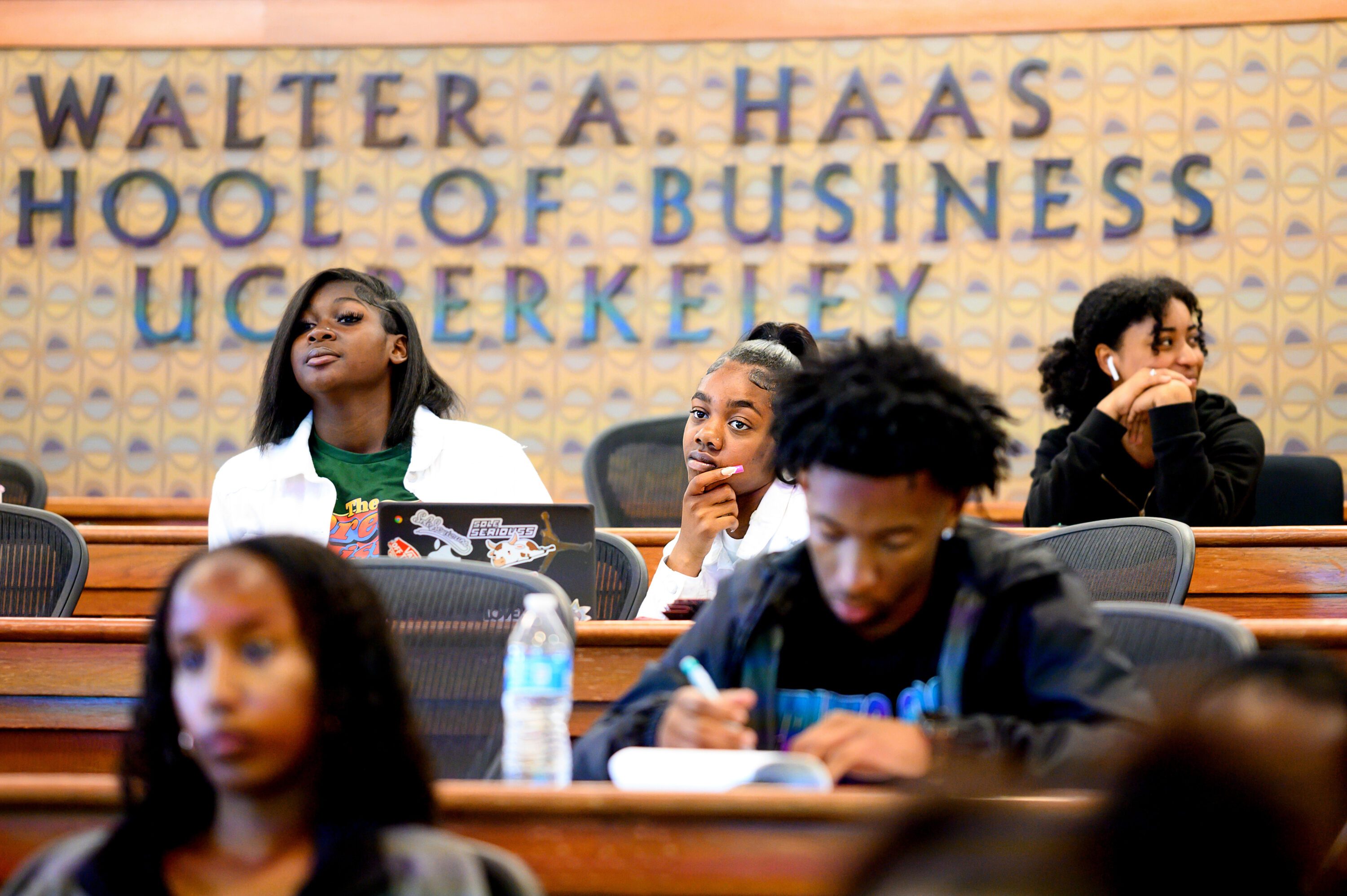
Alexandria Williams had taken economics at Oakland’s Skyline High School, but she didn’t learn much about how to actually budget and manage money. So for eight Saturdays during her senior year, she woke up early to head to class at Berkeley Haas, learning not only about personal finance but also about investing, home ownership, and building intergenerational wealth.
Her efforts paid off. Williams, along with 23 other high school seniors who graduated this month from the Economic Equity and Financial Education Pilot Program, walked away with an $8,000 college scholarship from Pacific Gas and Electric. The students also gained financial knowledge well above the average high school graduate plus a new network of supporters and mentors.
All 24 program graduates are going on to college.
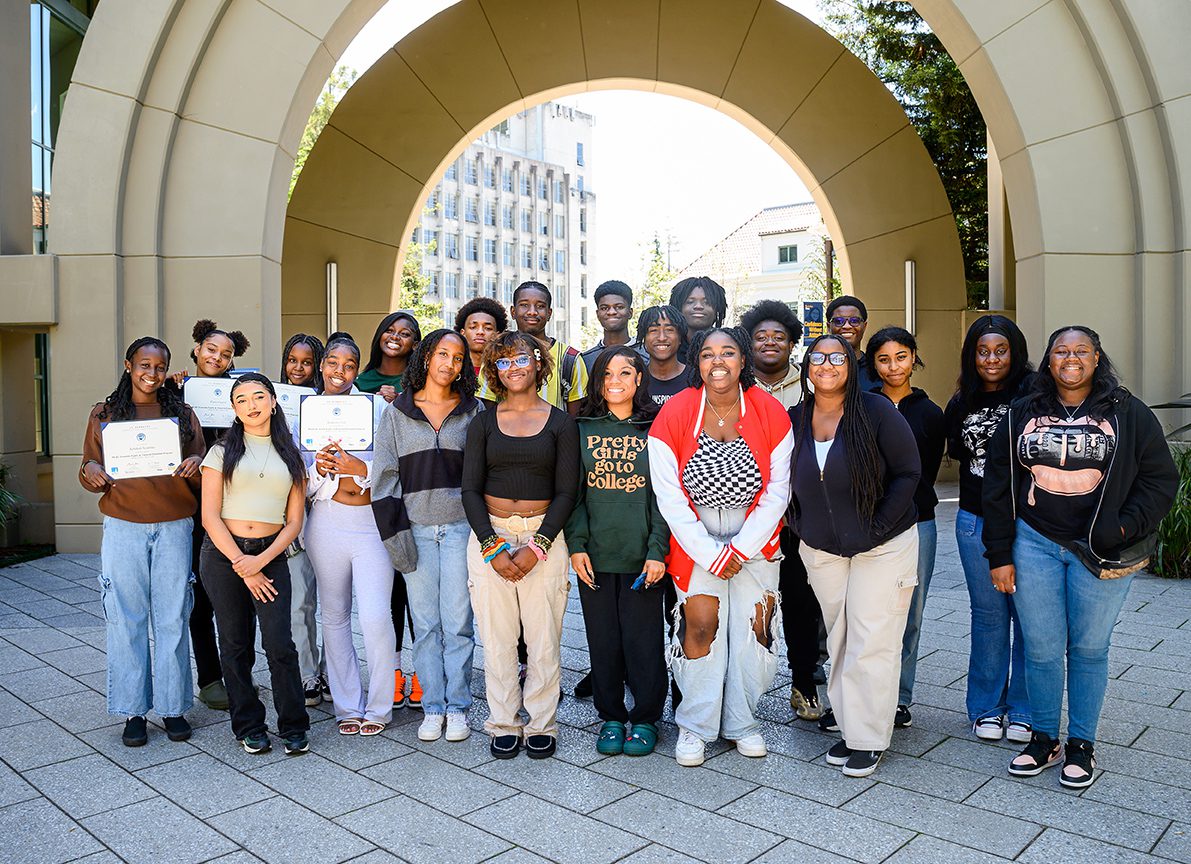
“What I would tell my friends would be to invest as much as you can for however long as you can, because the length of time makes a difference,” said Williams, who is headed to UC Irvine in the fall.
“Investing helps your money grow over time rather than just keeping it somewhere, since the value of money decreases over time,” added Christian Jones, a senior at Oakland Technical High School headed to Cal State East Bay.
The pilot program, created by Pacific Gas and Electric in collaboration with the Haas School of Business, Berkeley Executive Education, and Mills College at Northeastern University, aimed to equip African American high school students from under-resourced Oakland and Bay Area high schools with the financial tools for success. It also has a more ambitious goal: to make a dent in the pervasive wealth gap between white and Black and Latinx U.S. households.
“These kids have demonstrated a tremendous amount of discipline, and they’re investing in themselves, which is the biggest investment they can make,” said Jimi Harris, chief of community relations at PG&E, who created the program. “We wanted to prove that high school students could digest advanced financial education in the hope that it can be replicated by other corporate leaders and institutions.”
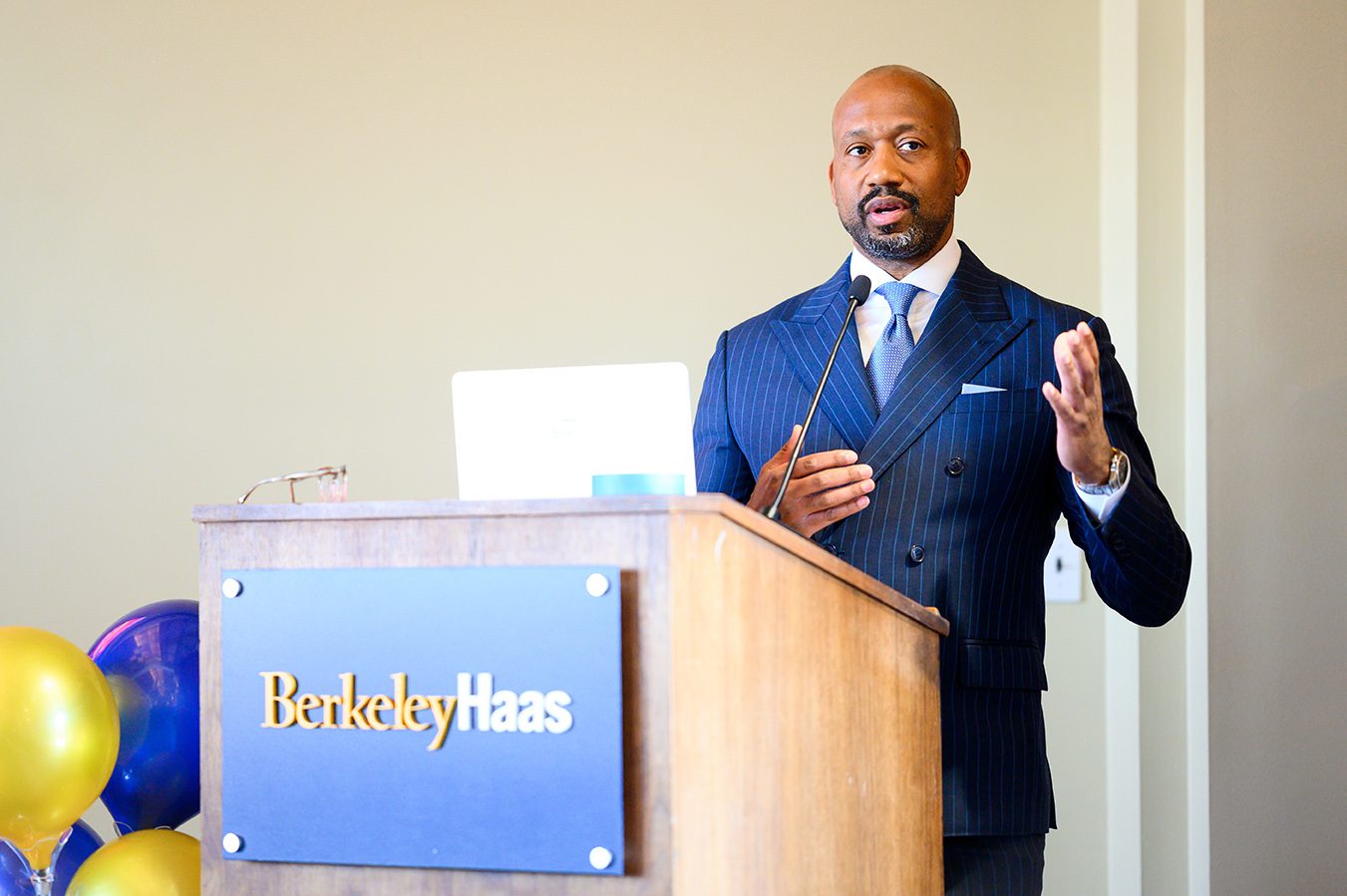
Harris came up with the idea for the program in the wake of George Floyd’s murder, to channel his anger and frustration into something positive, and PG&E committed to give $500,000 from its community charitable Better Together Giving Program. Harris reached out to his Morehouse College classmate Jason Miles, founder and managing director of Amenti Capital, who had started an investment club and launched Morehouse’s first student-run investment fund.
The two approached Berkeley Executive Education (BEE) with a request to design and deliver the curriculum after hearing about BEE’s successful Black Venture Capital Program. Miles worked with Associate Professor Panos N. Patatoukas to co-develop the curriculum. Mills College at Northeastern recruited the students through its TRIO college preparation program and assigned two caseworkers who proactively tracked and followed up with the students throughout the course.
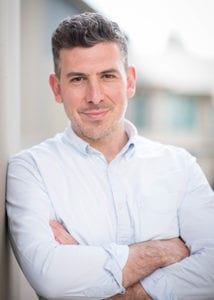
Patatoukas said he worked hard to adapt topics such as financial data analysis and corporate valuation, which he teaches to UC Berkeley MBA students and executives, to high school students who were taking the class at the end of busy weeks of school and activities. The program appealed to his passion for equalizing access to financial education and informed decision-making.
“Technology has been transforming education in profound ways, but access to financial education still remains within the reach of only a few,” Patatoukas said. “I was really excited to work with PG&E and Berkeley Executive Education on this important effort to make financial education more accessible. Mitigating the problem of access inequality to financial education has been the driving force of my efforts to foster diverse, equitable, and inclusive learning environments at Cal.”
According to a 2021 United States Federal Reserve study, the average Black and Latinx U.S. household earns about half as much as the average white household and owns only about 15% to 20% as much net wealth. This gap has persisted: A white person who has median wealth in their early thirties is expected to have more wealth in their late fifties than a Black person who has 90th percentile wealth in their thirties, a 2022 Brookings study found. And generally, white students are twice as likely as Black students to receive help from their families for higher education, according to a report of the California Task Force to Study and Develop Reparations Proposals for African Americans.
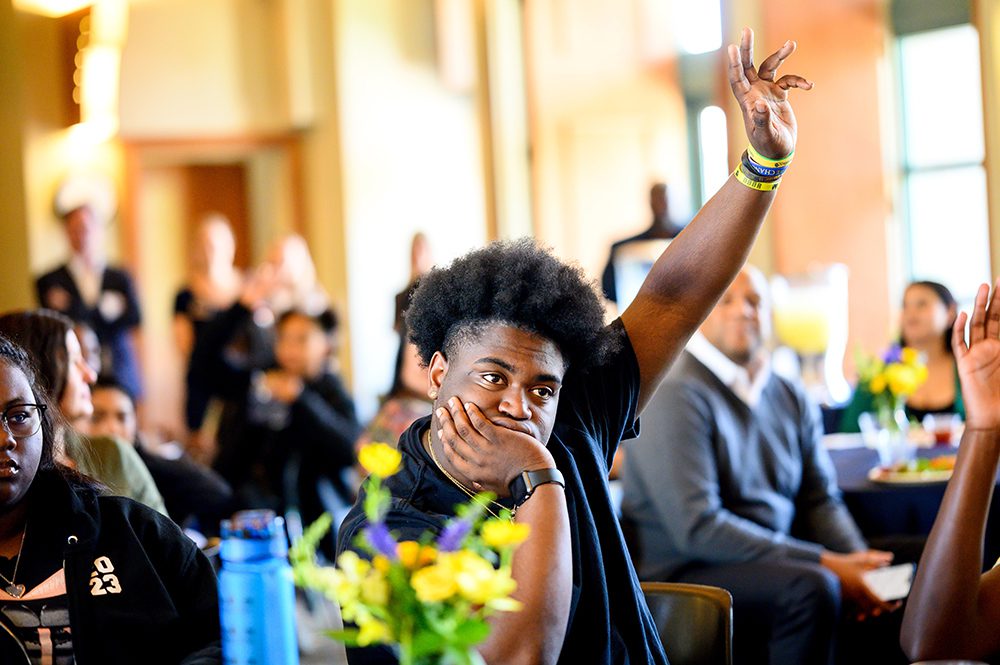
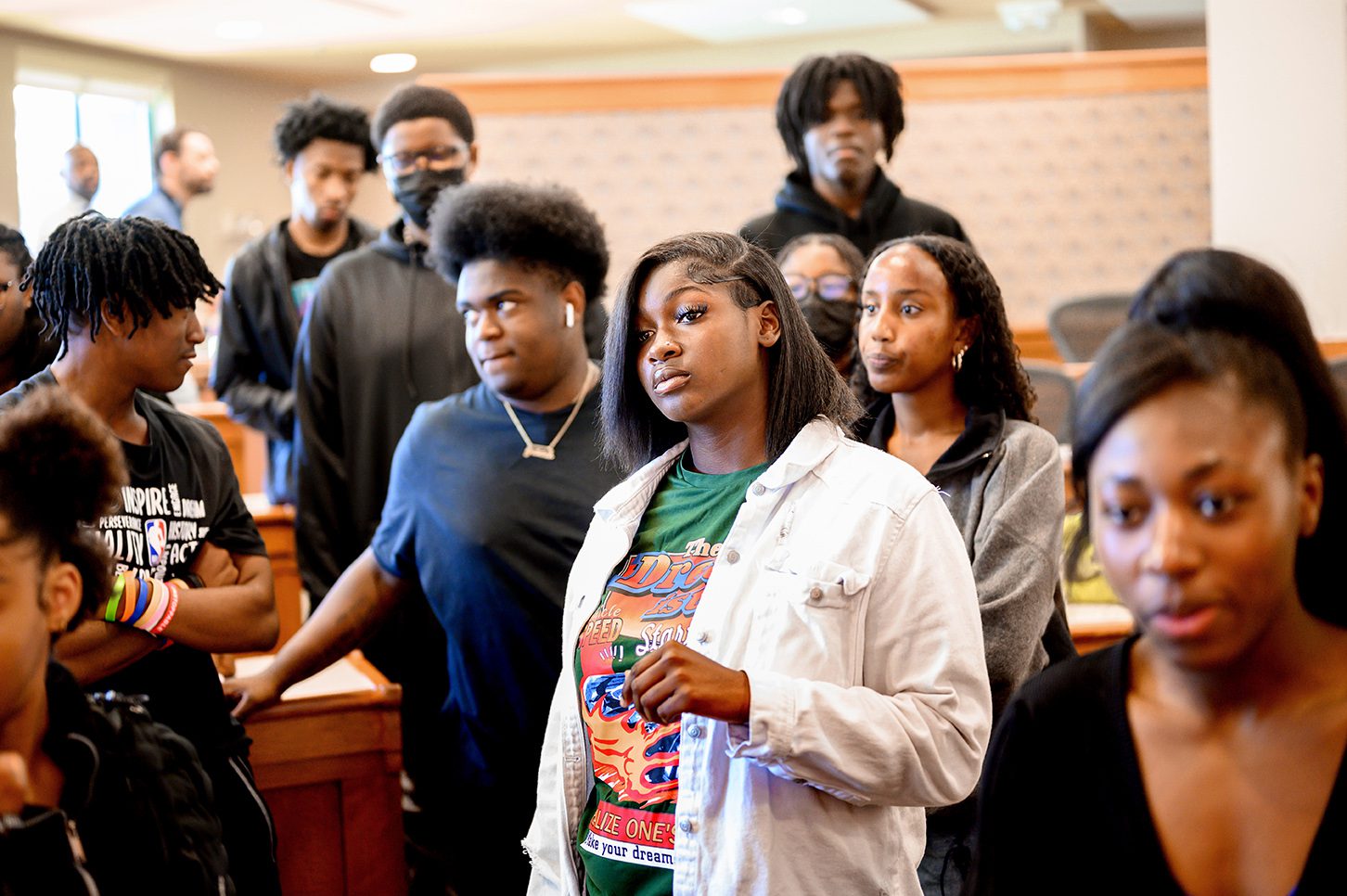
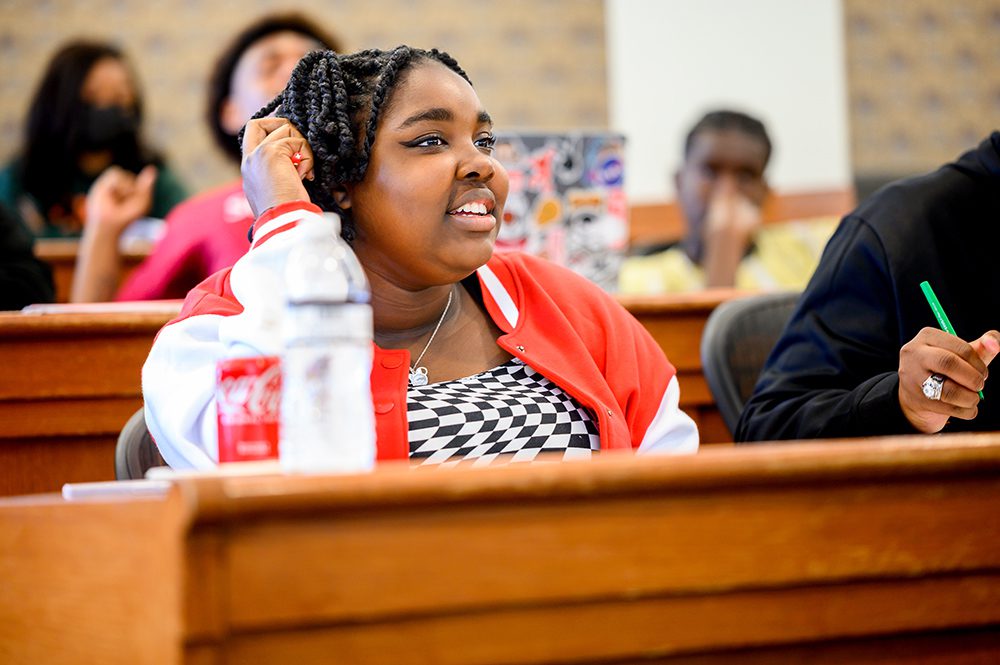
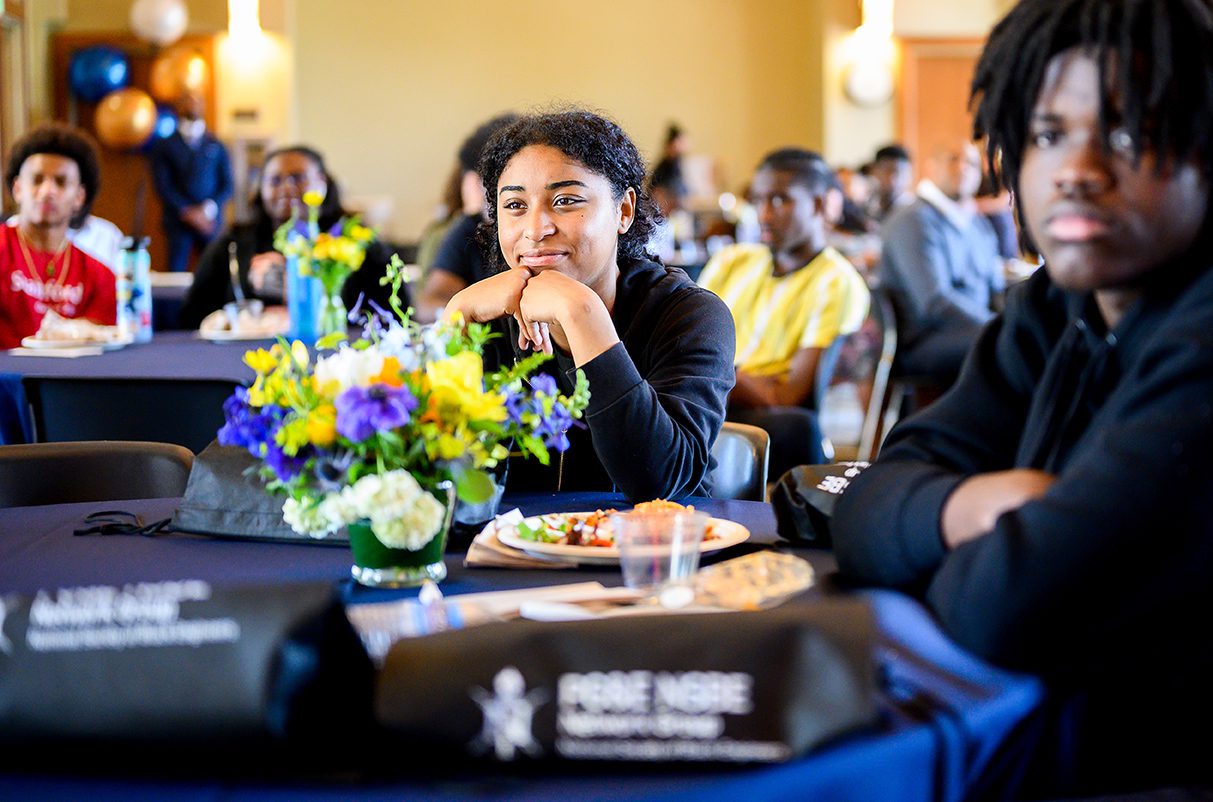
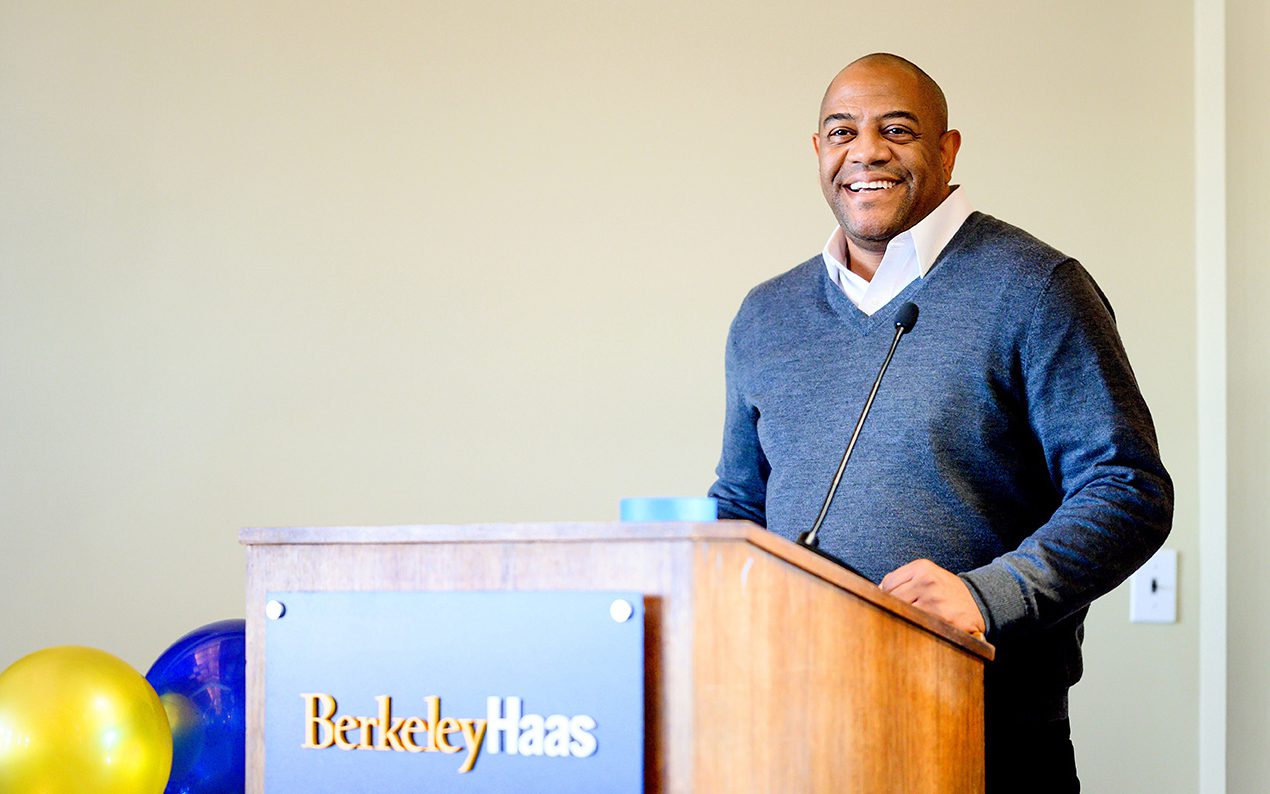
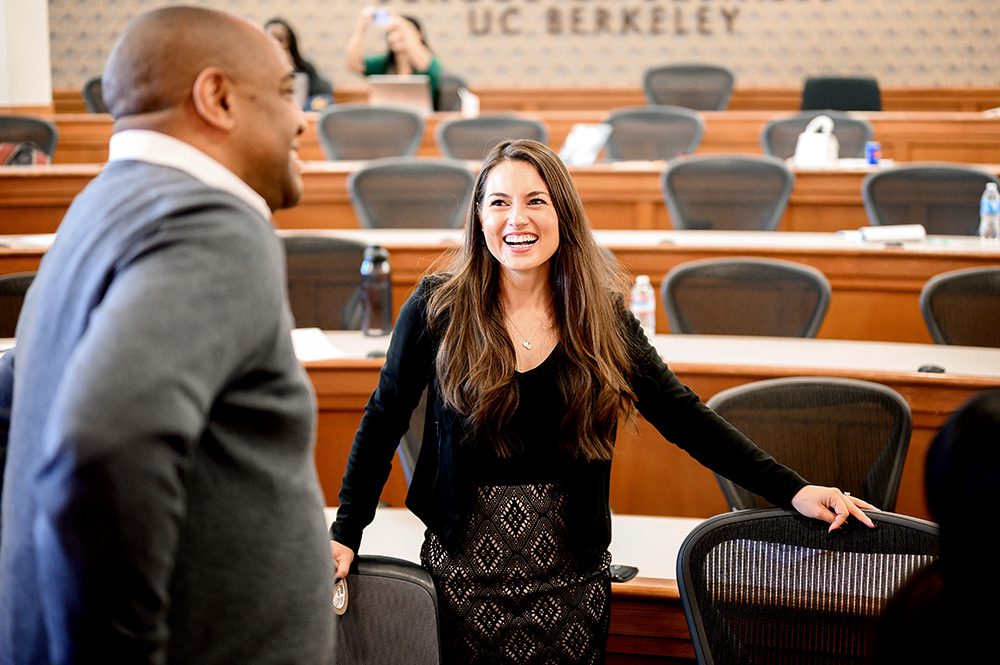
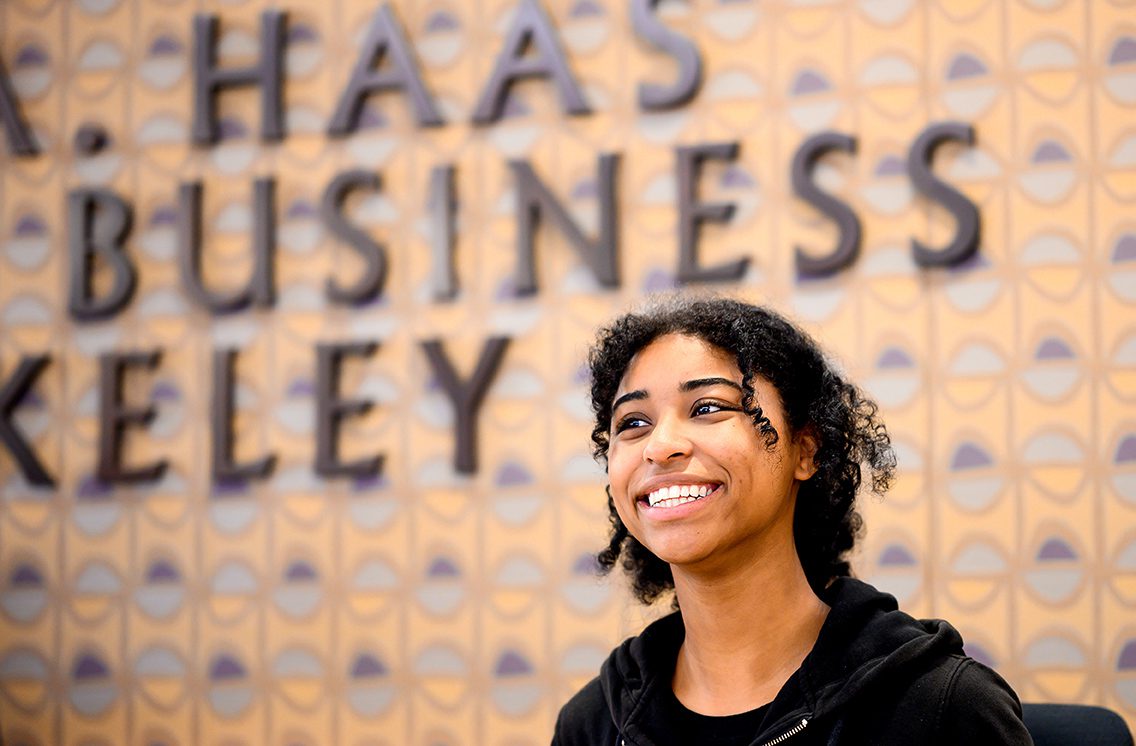
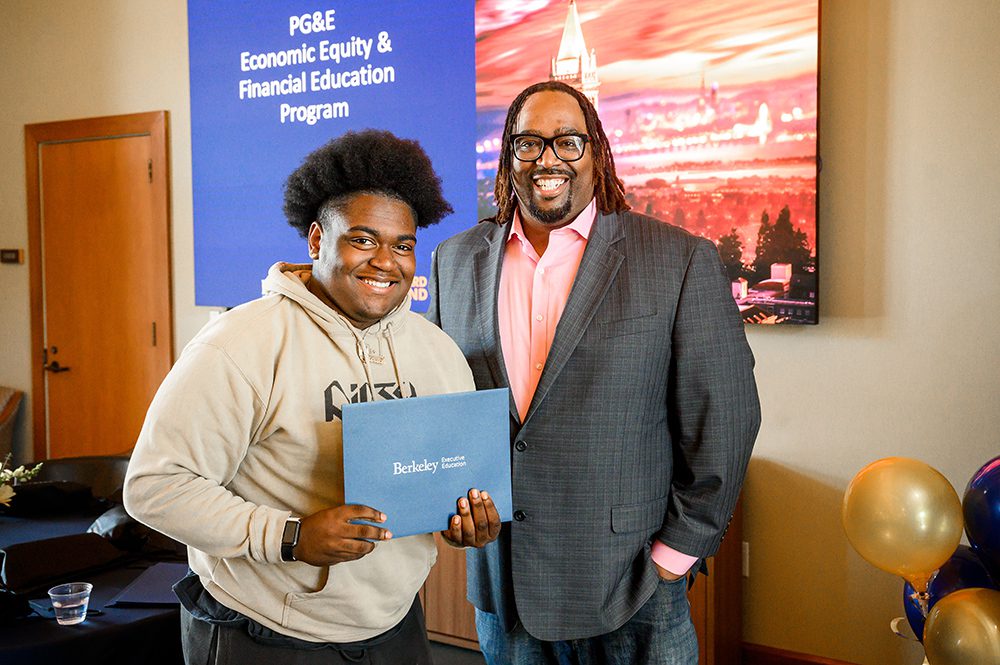
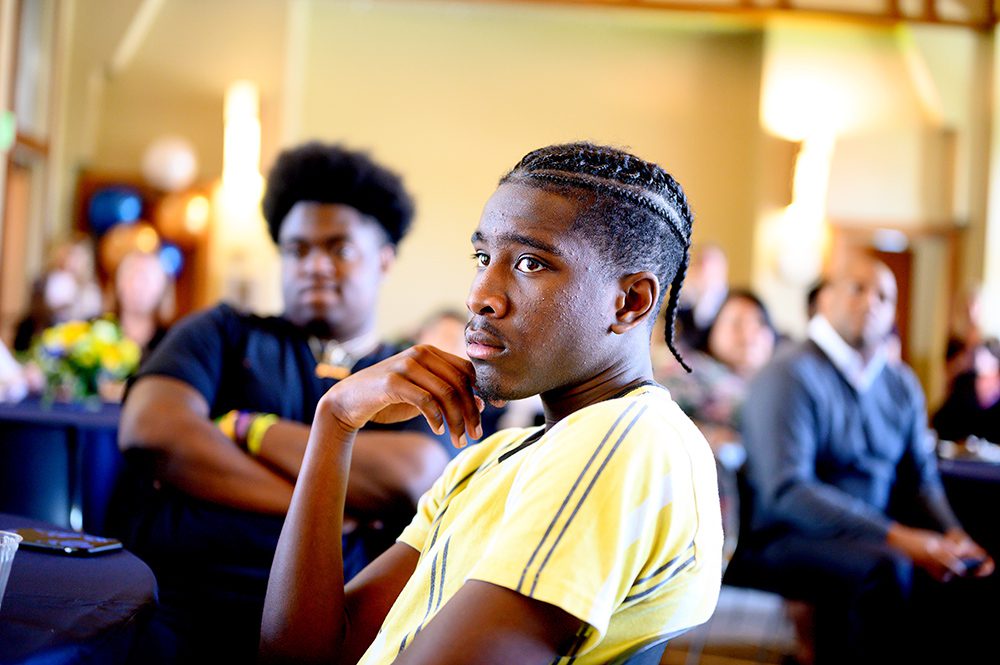
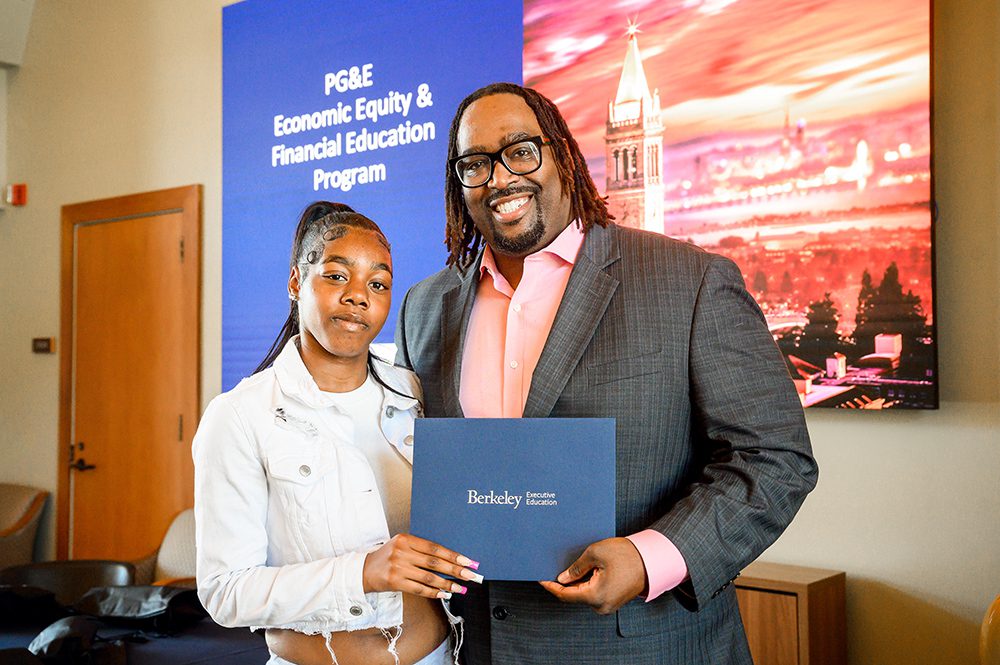
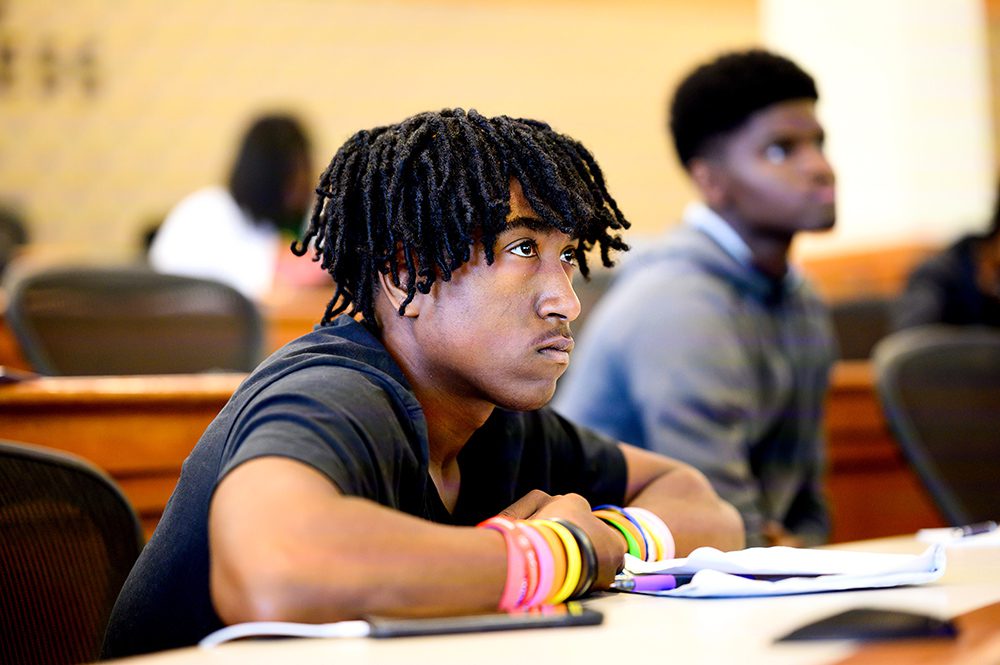
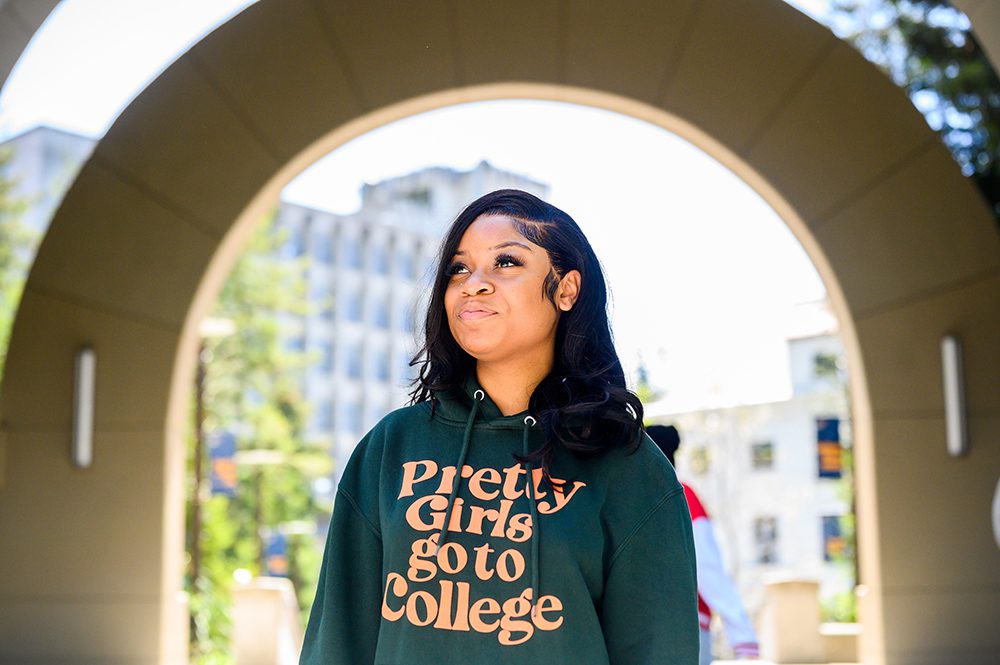
That’s why it’s so important for institutions like PG&E and Berkeley Haas to take an active stand on closing the wealth gap, said Carla Peterman, PG&E executive vice president and chief sustainability officer, in a speech to the graduates.
“When you take a stand and say it will be so, you are so resolved that instead of worrying about whether it might happen, you focus all your attention on making it happen,” Peterman told the students.
Peterman said she became the first African-American woman Rhodes Scholar after graduating from Howard University, earning an MS and MBA from Oxford University and then going on to a PhD from UC Berkeley. After she got the scholarship, another African American woman followed. And another. “Until then, there were people who didn’t think someone who looked like me could get it,” she said.
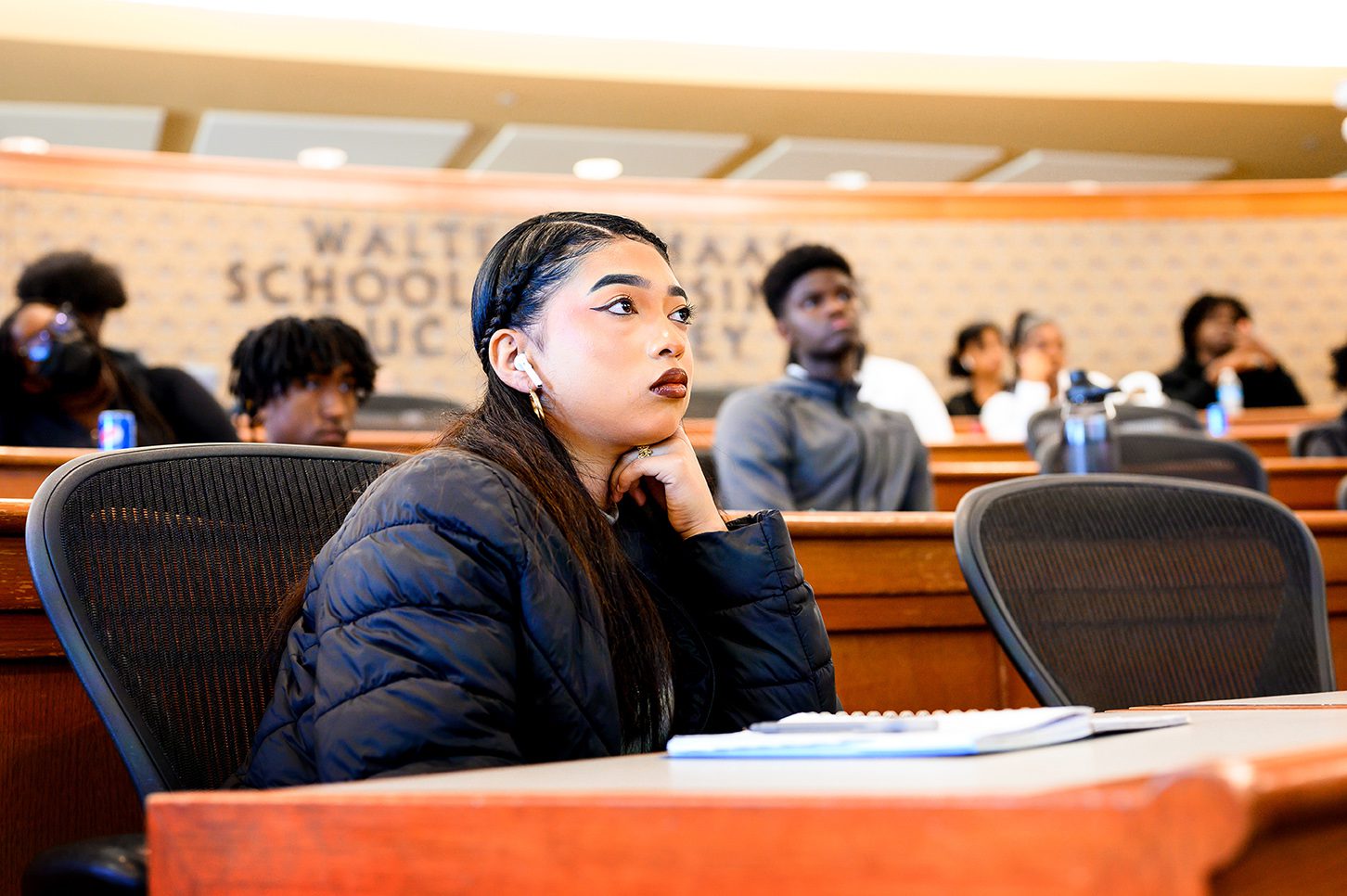
Marco Lindsey, Berkeley Haas associate director of diversity, equity, inclusion, justice, and belonging, echoed that theme.
“You can’t imagine how different things are going to be 10 years from now, or 20 years from now. But you know what? You are going to be the reason that it’s different,” he said. “Because we’re going to have more people that look like us, who are founders of organizations, who are founders of business, who are creating pathways, and who are making pathways for other folks.”
The graduates also heard from Berkeley Haas Dean Ann Harrison, who assured them that although she went on to become a prominent economist, they already know more about finance than she did at their age. She urged the students to continue to draw on their new network.
“As you leave this program, I ask you to stay connected to each other. Help each other succeed,” she said. “The people in this room are now a part of your social wealth, which, in my opinion, is just as important as financial wealth.”